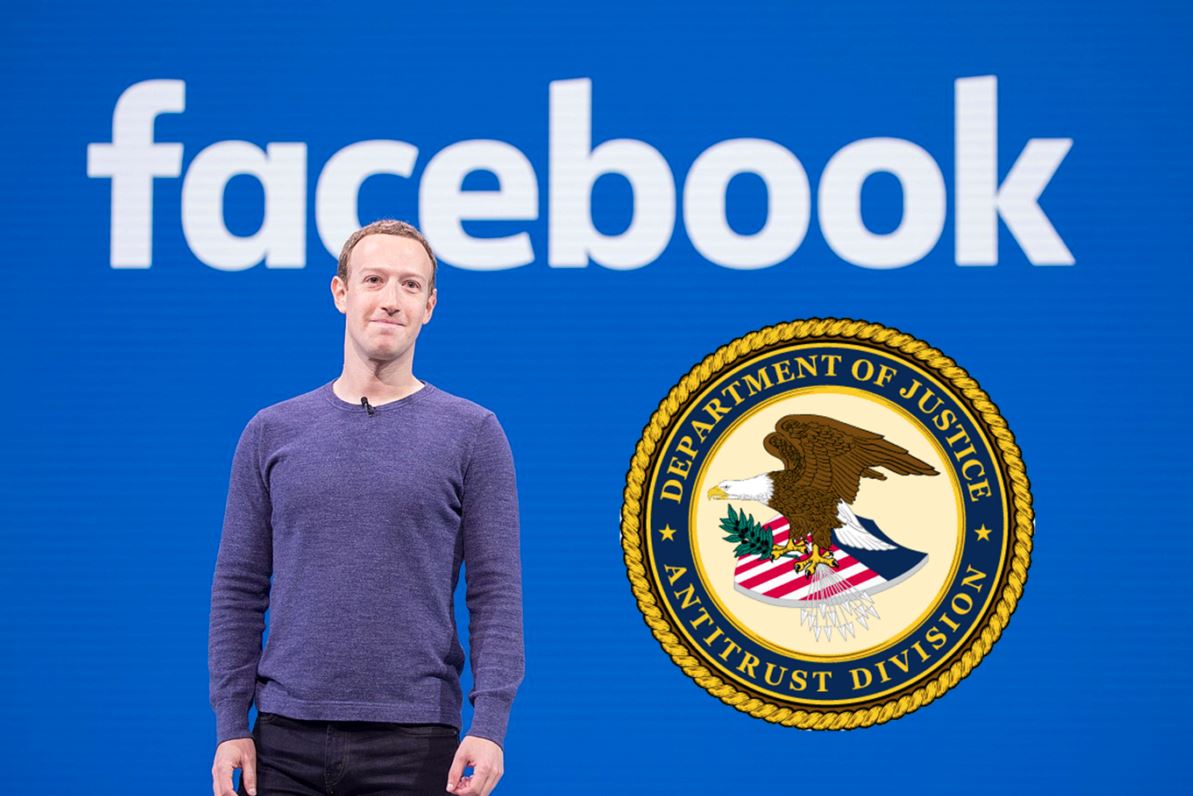Freedom of the press is guaranteed only to those who own one.
A. J. Liebling (American Journalist, 1904-1963)
 Thanks to the internet and platforms like Facebook, virtually anyone can now own a virtual press, publishing whatever one wishes, including text, pictures, audio, and video. Surely, Mr. Liebling would be impressed and amazed.
Thanks to the internet and platforms like Facebook, virtually anyone can now own a virtual press, publishing whatever one wishes, including text, pictures, audio, and video. Surely, Mr. Liebling would be impressed and amazed.
Today, Mark Zuckerberg’s Facebook is arguably the crown jewel of that global virtual press. Facebook has over 2.4 billion users. That’s nearly 1/3 of the entire world’s population who can read, comment, and upload all manner of content to the Facebook platform. It is truly a stunning technical and sociological achievement.
But there’s a problem, and it’s a big one. Intentionally or not, Facebook’s original noble mission, to be a platform for all ideas, has become corrupted by political censorship.
Facebook hires tens of thousands of “moderators” to keep Facebook “safe”. These nameless, faceless, paid reviewers regularly remove content and suspend users who violate what Facebook euphemistically calls “community standards”.
Now to be fair to Facebook —
I know from experience that moderators are indeed needed. For a short time, I was a moderator of a group on an alternative open platform called MeWe.com, and the pornography, filth, and vulgarity posted by some users (aka “trolls”) was astonishing. For that, I can certainly sympathize with Zuckerberg and his moderators.
However —
As a writer for a conservative-friendly website, I experienced Facebook political censorship first hand, repeatedly having my account suspended for periods from 3 days to 30 days, most often for posting legitimate positive articles and videos about serious black conservatives like Candace Owens or Thomas Sowell. Some of my fellow writers, whose articles were compelling and widely read, actually had their Facebook accounts terminated by Zuckerberg’s “moderators.”
In short, legitimate political commentary is being blocked under the guise of “safety”. This is classic censorship.
In fact, Facebook political censorship is now so widespread and growing that some have called for the Antitrust Division of the DOJ to intervene and break up Facebook into smaller competitors on the theory that writers and readers would then get fairer treatment.
I believe this would be a colossal mistake.
Much better would be for Facebook to open its own architecture, proactively offering and featuring a Curation Services Interface (CSI) to third parties.
Curation:
the selection, organization, and presentation of content and information, typically using professional or expert knowledge
By analogy, just as Microsoft encourages third parties to offer applications via its proprietary Windows Application Programming Interface (API), so Facebook could encourage third parties to offer end-users content curation via third parties employing Facebook’s proprietary Facebook Curation Services Interface.
Then, just as end-users get to choose the third-party Windows applications they want, Facebook users could choose the curation services they want from third parties.
For example, progressive-leaning users might choose a curation service offered by a consortium comprised of MoveOn.org, Mother Jones, and Salon, while conservative-oriented users might choose a curation service offered by a Breitbart, Hillsdale College, and Prager University consortium. Curation services could be supported by advertising or paid subscription.
Facebook could open this Curation Services Interface on its own and feature it as a win-win for everyone, which it would be. Or it could wait to be sued by Federal Antitrust, fight it in court for years, and ultimately succumb or enter into a consent decree to do pretty much the same thing. That’s what happened to the old AT&T Bell System in 1982.
Or Big Government and Facebook could do even worse …
For example, Facebook might consent (or even prefer) to be government-regulated, turning over its teams of “moderators” to federal control to ensure “fairness.” All those moderators would turn into Big Government thought police overnight. While Zuckerberg and lovers of Big Government might actually like that, the rest of us surely would not.
Much better for our mutual freedom would be to turn content curation over to a competitive marketplace of curators as outlined in this article. Facebook users would then be free to choose their curation service provider, and they could change it at any time.
This is not a new concept. After all, this is what existing magazine and website businesses already do — users are free to choose whatever magazine or website they wish, along with their implicit curators (editors).
Of course at least one of the curation services would be offered by Facebook itself, and users happy with the biased curation that Facebook already does could simply continue as they are now. But with an open Curation Services Interface, that magnificent underlying Facebook platform, with its 2.4 Billion trained users, could indeed be a platform for all ideas.
If Facebook does, in good faith, offer a Curation Services Interface and support curators just as Microsoft supports its application developers, Facebook would have itself a major new business opportunity, lots of goodwill, and relief from lawsuits and government intervention. And Zuckerberg would have a perfect rejoinder when conservatives complain about censorship. He could say: “Hey pal, get some partners, use our CSI, and do the curation yourself, damn it!”
Those who believe in a truly free press would all welcome a competitive Curation Services Interface (CSI) for the mighty Facebook platform.
And if he still could, I think old man A. J. Liebling would also approve!
As an afterword: Twittter, Google/YouTube, Google/Search, or any other information or mass-political discourse service could make the same strategic decision — namely, open up the curation part of your service to third parties. You’ll make money, they’ll make money, you’ll keep the feds away from your door, and your users will get to choose for themselves!


10 replies on “Don’t Break Up Facebook, Break It OPEN Instead”
Congratulations David! Good luck!
Good idea
Thanks for sharing
Although I think your idea might be a good one, I don’t think it does enough. I was banned several times when I was still on Facebook, for what they deemed “hate speech”. Neither post singled out any person or race, and since my settings were set so that only those on my friends list could see it, I was still banned. Facebook has no business determining what my friends or contacts view. That should be left entirely up to them. If they don’t like it, they can let me know or unfollow me. Yet these big tech companies continually decide what “they” think is acceptable, and if it doesn’t match their agenda, it’s removed. No, I think more needs to be done than what you suggest.
Thanks for the thoughtful comment. Under this proposal, no one could be banned from the platform — it would be as neutral toward content as the telephone company’s circuits are to telephone-call content.
What would be different is that users could choose curation by parties other than Facebook, and your posts would not be censored by those parties.
Over time, Facebook curators could block all conservative content if they wished to, but they’d suffer the reputation and reduced viewership that comes with it. But your material would still be available from other curators on the very same platform.
If FB does not agree to an arm’s length relationship between curation and platform, then, as the DOJ did with old Ma Bell, Facebook could be split into two separate companies — a neutral platform company and a curation company that could be as biased as they like.
Your Curation idea is interesting, but…here it comes…would Zuckerberg really be willing to give up the Power? I have never considered Facebook, Twitter, Google, etc. to be so-called technology platforms. Plain and simple, they are media outlets…why does everyone refer to them as social MEDIA? They should be regulated just like any other media outlet. Another way to solve this issue is to NOT fact check anything. Let the user beware and check sources on their own.
Thanks, Jim! – Your model of self-curation could and should be one of the user options in the competitive-curation-services model. But after my experience as a moderator on a MeWe.com group, I predict virtually everyone will want someone else to filter the irrelevant garbage that they would otherwise have to look past.
If I were Zuckerberg, I’d certainly announce an intent to create a Curation Services Interface, and I’d charge my developers to make it happen. He could be the Windows API of the social media world.
On the other hand, if he tries to keep a 2.4-billion subscriber platform for himself and be the only curator, that’s a bridge too far, and the guillotine of antitrust should and probably will drop. There will then be a platform company with protections and a curation company with the usual liabilities. Full arms-length separation.
The parallels to the AT&T breakup are compelling (to me).
Social and political discourse is just as important as commerce, and no one person or company can have a virtual monopoly on it any more than Hearst could get a virtual monopoly on the newspaper business of old. I’m surprised we haven’t heard more from DOJ Antitrust already — maybe they’re working on it.
Of course if the Left wins the presidency, it’s all moot for many more years(!).
As I think you would agree David, Human nature is driven by self-interest. In Zuckerberg’s case, I truly believe he is driven by a narcissistic desire for even more POWER. I will say, he is hedging his position right now by claiming he will not fact check Trump like Twiter in his interview with Dana Perino here: https://www.msn.com/en-us/finance/other/mark-zuckerberg-told-fox-news-that-facebook-would-not-fact-check-trumps-false-claims-as-twitter-did/ar-BB14HP92
I still do not trust him and firmly believe he is in it for himself and seeks to impose his world view on all of us. Think crypto-currency as just another example.
Thanks, Jim – those are more good comments.
Well, I’m with you — I don’t trust any of these guys to act counter to their self-interest, whatever it is that motivates them. Power and money are just too tempting.
I’ll always maintain that it is a free-to-choose, free-market system that gets the most good from and for all parties involved, no matter how “greedy” or “evil” the parties are.
A competitive market in curation services would serve everyone’s interest best, from Facebook shareholders to free-to-choose Facebook users. Then those users who like Facebook’s particular brand of Leftist curation can stick with Zuckerberg and his censors — but those who prefer more conservative curation would have other choices.
As usual, brilliant insight, combined with excellent experience at an old AT&T megalith similar to Facebook. Curation is a good idea, but it leaves a monster megalith ( Facebook) in the marketplace that cannot be sustained. For one thing, the Facebook boys and girls begin to act like Big government, not good for the world discourse. What we have learned in communication research game is what Harold Mendelssohn learned many years ago, namely, it is not just what the media do to people, it is what people do with the media. We are witnessing, by your own discussion here, the latter not just the former. Curation offered one such outlet for piggybacking on this idea, but it still leaves open the a thorny issue raised by Jacque Ellul in his book on the Technological Society, what are the consequences of a society ostensibly restructured and led by technicians like a Zuckerberg? Not good so far. They are not fact-based people but rather a labyrinth of liberals spewing their liberal misinformation for others who care to clean up! (Twitter) Moral values led by technicians does not appear to be a world many of us want to live in. Thus, for many libertarians, for example, the leviathan of Big government can be easily replaced by the leviathan of Big tech. Not sure this is viable over time, especially when we see what communism does with the “social media”. Break up the Leviathan and anything that destroys the liberty of the individual or messes with free speech without controls to sustain the rule of law. Keep curation so sociological peer groups can voice their views.
Thanks, Prof Gene! All good points.
User choice and competition in curation services is in the best interests of all, IMHO. While Facebook makes my teeth hurt, they have created a 2.4-billion-user network of trained users and contributors. No small feat. I’d sure like to keep that going. What I can’t tolerate is for Zuckerberg to also have exclusive rights to curate all content. That’s where I’d like to see choice. Lefties can choose Facebook’s own current curators, but I’d like to choose another. Facebook could enable that choice voluntarily (at great profit to his company and shareholders) or he could have it forced on him by Big Government trust-busters.
I’m no fan of Big Govt, but even Milton Friedman (my idol) said that antitrust is the one Big Govt function he approved of because, done right, it increases competition rather than stifling it.
[…] Related Article: Don’t Break UP Facebook – Break it OPEN Instead […]